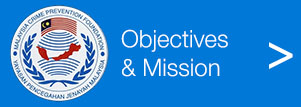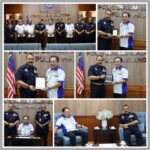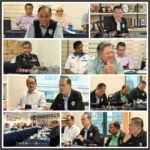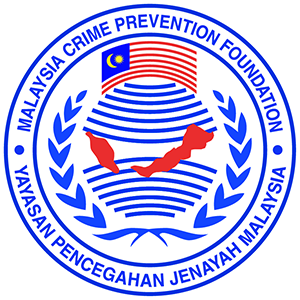
The 11th Forum on Crime and Policing in Malaysia opened in George Town today, bringing together over 100 experts and civil society groups.
Themed Contemporary Issues and Challenges on Drug Use in Malaysia, the one-day event provided a platform for frank discussions on current drug policies, rising drug use, and the need for reform.
Organising chairman Datuk Dr P. Sundramoorthy said the forum sought to critically examine existing policies and highlight the urgency for change.
“Our main goal is to raise awareness and increase knowledge among civil society about drug use in Malaysia. At present, drug users are treated as criminals. However, many countries now view it as a public health issue rather than a criminal one,” he said.
Sundramoorthy, a criminologist, stressed that policy reform was crucial in shifting public perception and influencing policymakers.
“The stigma linking drug use to crime needs to be reviewed. People often assume drug use directly causes crime, but in reality, it is only one of many contributing factors. Marginalisation, inequality, poverty, and education levels also play major roles,” he explained.
He added that while drug use can be linked to petty crime, its connection to violent crime is extremely rare.
He also pointed to Malaysia’s long-standing failure to address drug addiction effectively, despite spending billions of ringgit over six decades. He cited Deputy Prime Minister Datuk Seri Ahmad Zahid Hamidi’s recent acknowledgement of the issue in August as evidence of the need for urgent reforms.
“When even national leaders recognise the problem, we must adopt a more open-minded approach. We should study international examples, including the decriminalisation of drug use. Sending repeat drug users to prison is counterproductive. Treating it as a public health matter could reduce overcrowding in prisons and free up law enforcement resources,” he said.
Sundramoorthy stressed that harsh penalties should be reserved for drug traffickers, not users.
The forum was organised by Universiti Sains Malaysia’s Centre for Policy Research in collaboration with the Malaysia Crime Prevention Foundation (MCPF) Penang, the Drug Policy Programme Malaysia, and the Penang State Government. Twentytwo13 was the official media partner.
Keynote speakers included Professor Dr Vicknasingam B. Kasinather from USM’s Centre for Drug Research, who is also a member of the World Health Organisation’s Expert Committee on Drug Dependence and the United Nations Office on Drugs and Crime Scientific Advisory Committee, and Dr Azeem Fazwan Ahmad Farouk, Director of the Centre for Policy Research.
Other panellists were Drug Policy Programme Malaysia Director N. Palani; Dr Rohana Ariffin, Co-Founder of the Women’s Centre for Change (WCC) Penang; Datuk Seri Abdul Rafique Karim, Immediate Past President of Penang’s Majlis Dato’-Dato’; and Dr Nurhaliza Zakariah, Public Health Medicine Specialist and Head of the Tobacco, Alcohol and Substance Abuse Control Sector at the Ministry of Health.
The panel session was moderated by Associate Professor Dr Azrina Husin from USM’s School of Social Sciences (Sociology).
The forum drew about 120 participants, including academics, law enforcement officers, addiction specialists, healthcare providers, community leaders, and individuals affected by drug use.
The event was closed by Penang State Housing and Environment Committee chairman Datuk Seri S. Sundarajoo.
This article first appeared on Twentytwo13.
Past Events
- MCPF Penang pays a Courtesy Visit to YDH CP Dato’ Ts. Azizee bin Ismail at Penang Contingent Police HQ
- MCPF Penang & MCPF Secretariat Team supports PWDC’s 12th Penang Goes Orange Program at The Esplanade, George Town
- MCPF Penang attends PDRM’s 2025 North Zone ATIPSOM Enforcement Seminar at Grand Ballroom, G Hotel, George Town
- MCPF EXCO Member / MCPF Penang Deputy Chairman Dato’ Seri K. Pulayantran attends MCPF Management Standing Committee Meeting at MCPF HQ
- MCPF Penang guided by its Chairman Dato’ Seri Ong Poh Eng holds a Tender Opening for CCTV Project (SMK Mengkuang) Proposal at PGC






